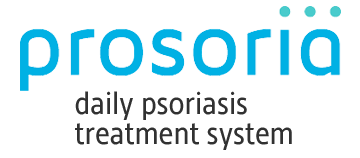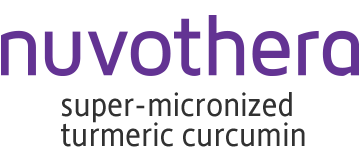
Research shows Vitamin D and natural sunlight can help reduce inflammation, helping to clear psoriasis plaques.
From helping you get enough Vitamin D to allowing your body to naturally fight depression, natural sunlight can have an incredibly positive impact on your physical and mental wellbeing — especially if you have psoriasis. One study showed that people with psoriasis typically have low Vitamin D levels, and, since natural sunlight is the best way to increase your body’s levels of the vitamin, it may also be able to help reduce the intensity of your psoriasis.
In addition to boosting Vitamin D, research also indicates that ultraviolet light rays from the sun may have immunosuppressive elements. Since psoriasis is an immune-mediated inflammatory disease, those UV rays might also be able to help reduce psoriasis symptoms. Despite sunlight’s benefits, you should be careful to take precautions; while a moderate amount of sunlight may have a positive effect on your psoriasis, too much could actually make it worse.
Like we’ve said before, when it comes to managing your psoriasis, knowledge is power. So, the more you know about how sunlight may affect your condition, the more you can do to live powerfully and intentionally while managing your psoriasis symptoms.
When getting sunlight, you should wear sunscreen and gradually increase their exposure.
We experience two major kinds of ultraviolet rays from the sun, UVA and UVB rays. Both types of UV rays can help treat psoriasis; however, UVB light is usually considered the most effective since it reduces the rate of skin growth and shedding. In fact, in the study mentioned earlier, psoriasis patients exposed to daily sunlight saw significant improvement with only two weeks of exposure, which the researches accredited to UV light’s effect on their skin. While both types of ultraviolet light rays can be beneficial in moderation, it’s important to remember that they can also be harmful in excess.
For that reason, if you have psoriasis, you should limit yourself to only 10 minutes of direct sun exposure per day at first. If you tolerate it well, you can consider adding 30 seconds to 1 minute a day of additional exposure. But before you get out your towel and sunscreen, you should check with a doctor before getting direct sun exposure, especially if you’re dealing with a particularly intense psoriasis flare-up. Certain medications (especially topical treatments, such as creams, ointments or gels) may also make your skin more sensitive to the sun, so, if you’re using any medications, it’s a good idea to mention these to your doctor as well.
In addition to limiting your sun exposure and talking to your doctor, you should always wear sunscreen when going out in the sun. In many cases, a broad spectrum sunscreen, which protects against UVA and UVB rays, is the best choice — though you should also check with your doctor to determine what kind of sunscreen is best for your skin. Plus, it’s a good idea to make sure your sunscreen is at least SPF 30, if not more.
While moderate sunlight can be helpful, sunburns can actually make psoriasis worse.
Sunburns from too much sun exposure can cause new psoriatic plaques at the site of the burn, in a process sometimes known as the Koebner phenomenon. The Koebner phenomenon can affect one in four people with psoriasis, and can also be triggered by cuts, scrapes, or mosquito bites. No matter what, too much sun exposure can increase your risk of developing melanoma skin cancer — which is just another reason to be careful and responsible when you go out in the sun.
If getting natural sunlight is out of the question, eating vitamin D rich foods or getting artificial phototherapy may be able to help.

If you live in an area with little natural sunlight or have another medical condition which prevents you from getting sunlight, there are still ways to reap the benefits of sunlight for psoriasis treatment, albeit using slightly different methods. For example, you can up your Vitamin D consumption by eating foods like salmon, tuna, egg yolks, Swiss cheese, fortified milk and orange juice, which are all great, natural sources of the nutrient. In addition, Vitamin D3 supplements and creams may also be able to treat Vitamin D deficiency in people with psoriasis.
Another way to help treat psoriasis can be artificial phototherapy, in which a light box is used to shine UVA or UVB rays onto the skin. While UVB rays are typically more effective in phototherapy, UVA rays penetrate deeper, and can be combined with a drug called psoralen, which increases the body’s sensitivity to these rays during the phototherapy process. While natural psoriasis treatments like Vitamin D-rich supplements and foods, as well as doctor-approved phototherapy may be a good substitute for natural sunlight, tanning beds are not, and should generally be avoided by anyone with psoriasis.
Sunlight may also be able to help treat depression and anxiety, common comorbidities of psoriasis.
According to the National Psoriasis Foundation, depression is one of the main comorbidities of psoriasis, but sunlight exposure may be able to help. Without sufficient exposure to the sun, the brain may not make enough serotonin — the neurotransmitter that regulates mood and happiness. Research indicates that sunlight exposure may also be able to help people suffering from anxiety — and that it could be even more important for people with psoriasis who also suffer from Seasonal Affective Disorder (SAD). A daily dose of turmeric may also be helpful.
If you have psoriasis, consider getting moderate sunlight while taking smart precautions.
In limited quantities, and with the right precautions, sunlight may be able to significantly reduce your psoriasis symptoms. In fact, some people say that they see a huge difference with just a few week’s exposure to natural sunlight. Despite the potential benefits, it’s essential to take proper precautions, like sunscreen, sunglasses, and, perhaps most importantly, limiting the amount of time spent in the sun. You should always check with your doctor before deciding to increase the amount of sunlight you’re getting. A doctor can tell you just how much sunlight you can safely get and if you need to take any specific precautions before soaking up the sun’s rays.
While dealing with your psoriasis can sometimes seem like a rough ride, understanding more about it can put you back in the driver’s seat — empowering you to make the best decisions about your health and living life to its fullest, while managing your psoriasis.
If you’re not satisfied with the results of your current treatment of psoriasis — or you just want to try a new, non-prescription way to treat your psoriasis, we invite you to try Prosoria’s™ dermatologist-tested, once-daily psoriasis treatment system. Our botanical rich formulas are clinically proven to not only relieve psoriasis symptoms, but also help prevent recurrences. The entire Prosoria™ team is here to support you on your journey to clearer skin today.
If you have questions about how Prosoria™ can help your psoriasis symptoms, sign up for our newsletter, follow us on social media, shoot us an email, or visit prosoria.com and contact us for more information!

